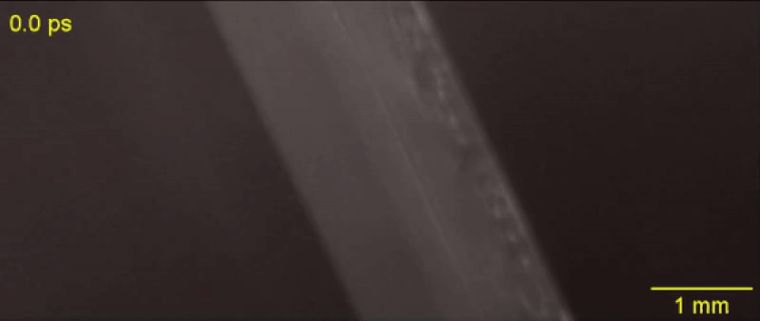Does light itself truly have an infinite lifetime?
In all the Universe, only a few particles are eternally stable. The photon, the quantum of light, has an infinite lifetime. Or does it?

By firing a pulse of light at a semi-transparent/semi-reflective thin medium, researchers can measure the time it must take for these photons to tunnel through the barrier to the other side. Although the step of tunneling itself may be instantaneous, the traveling particles are still limited by the speed of light. By taking high-speed images of this light pulse, we can construct a movie that appears continuous.
One of the most enduring ideas in all the Universe is that everything that exists now will someday see its existence come to an end. The stars, galaxies, and even the black holes that occupy the space in our Universe will all some day burn out, fade away, and otherwise decay, leaving what we think of as a “heat death” state: where no more energy can possibly be extracted, in any way, from a uniform, maximum entropy, equilibrium state. But, perhaps, there are exceptions to this general rule, and that some things will truly live on forever.
One such candidate for a truly stable entity is the photon: the quantum of light. All of the electromagnetic radiation that exists in the Universe is made up of photons, and photons, as far as we can tell, have an infinite lifetime. Does that mean that light will truly live forever? That’s what Anna-Maria Galante wants to know, writing in to ask:
“Do photons live forever? Or do they ‘die,’ and convert to some other particle? The light we see erupting from cosmic events over a verrrrry long past … we seem to know where it comes from, but where does it go? What is the life cycle of a photon?”
It’s a big and compelling question, and one that brings us right up to the edge of everything we know about the Universe. Here’s the best answer that science has today.